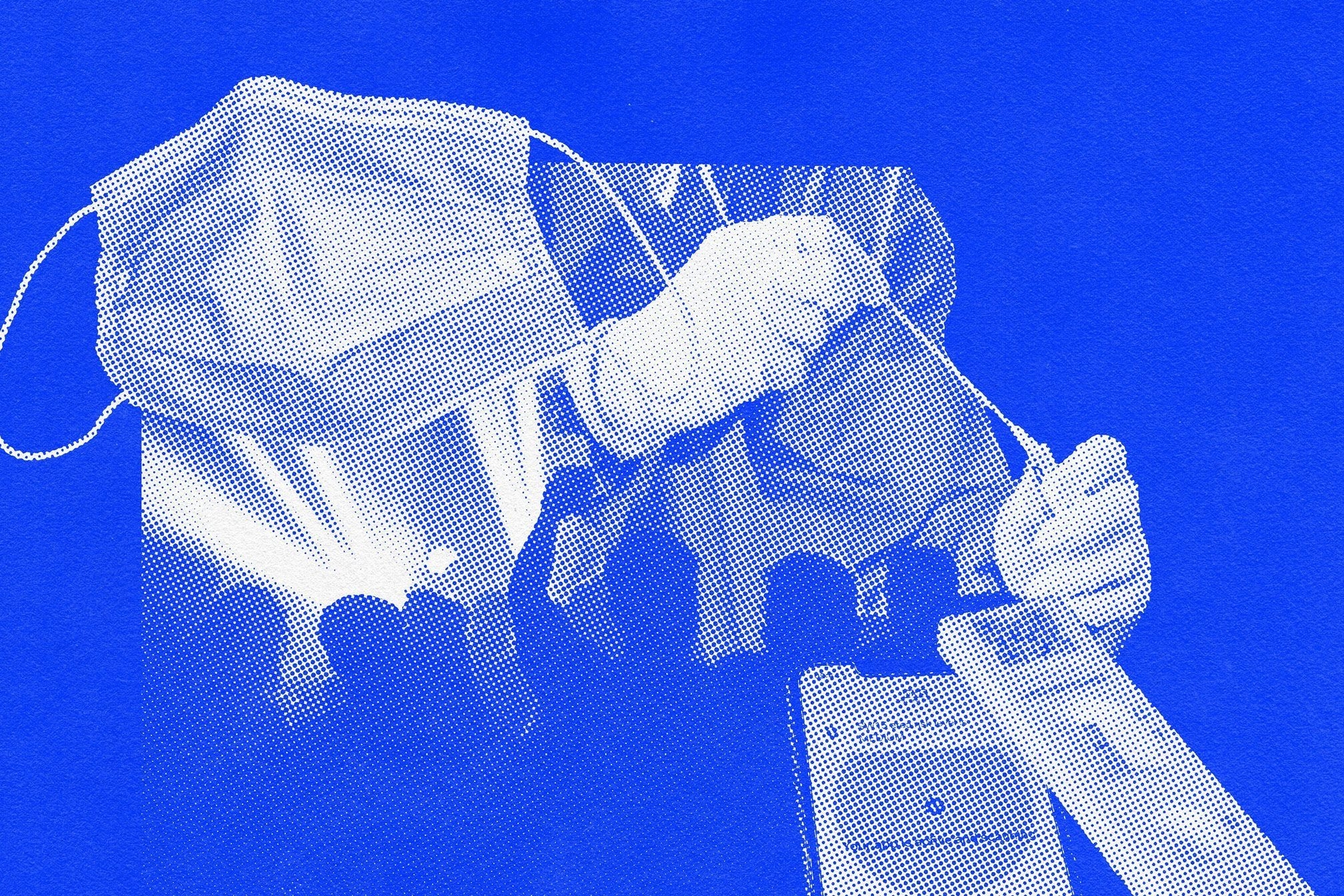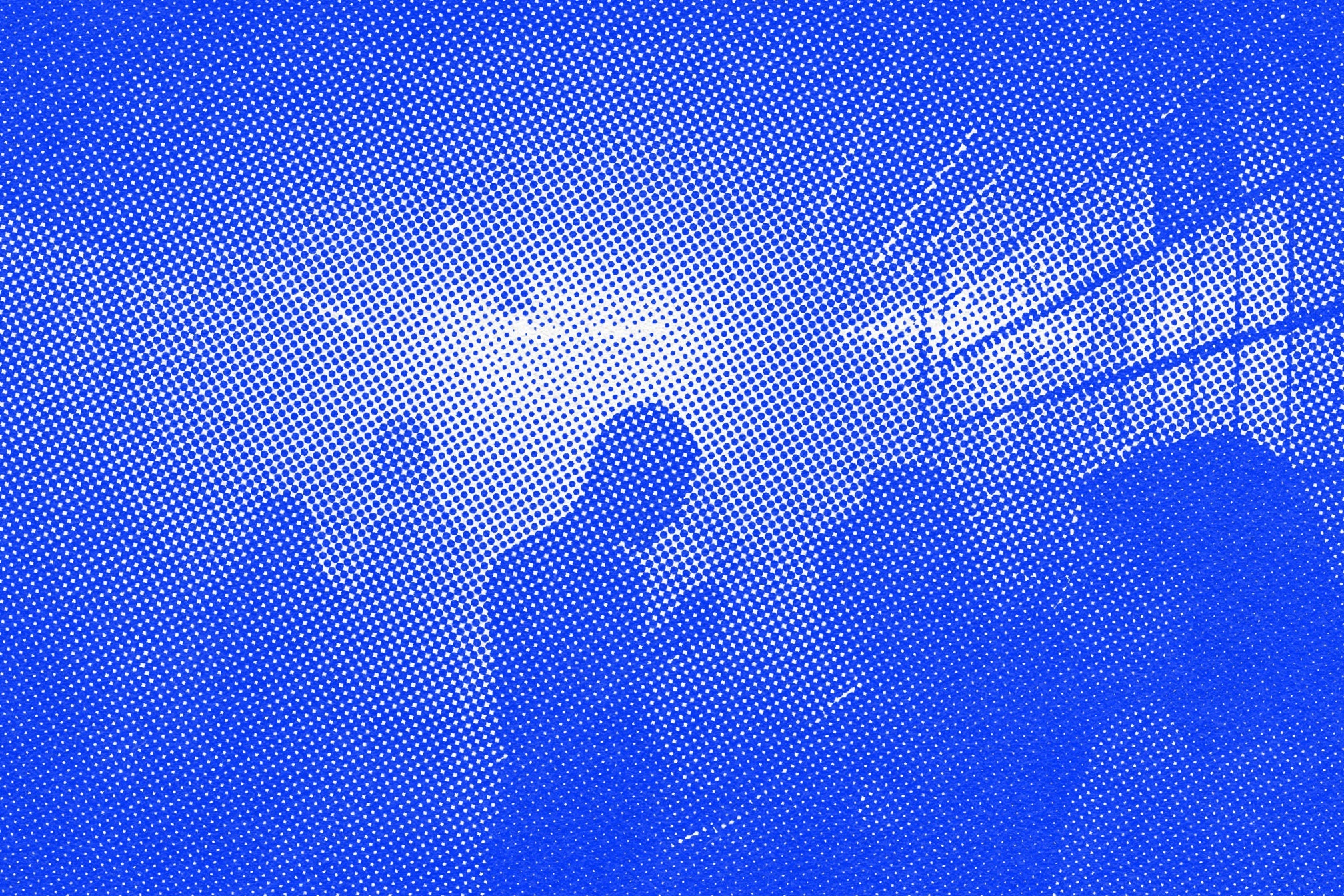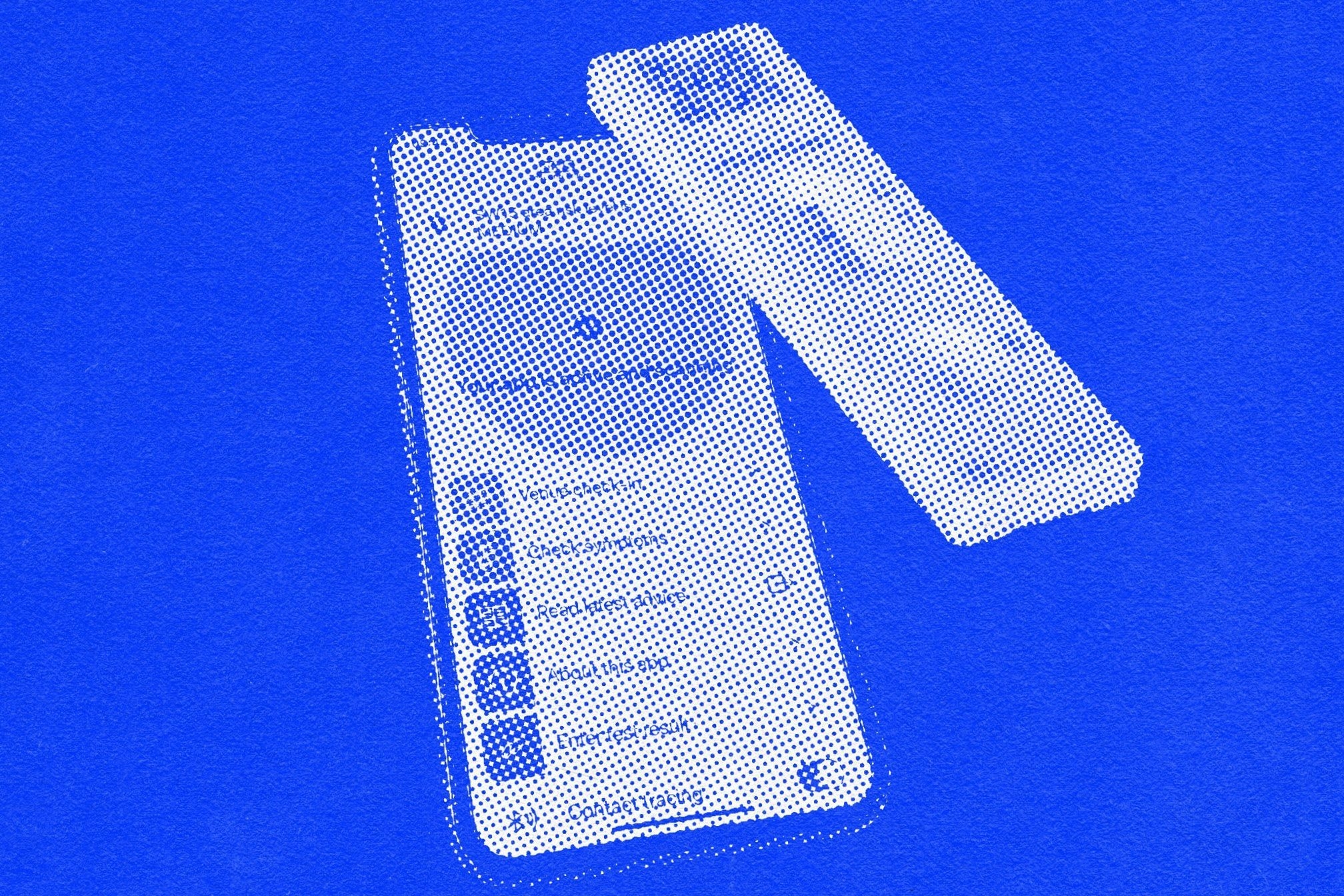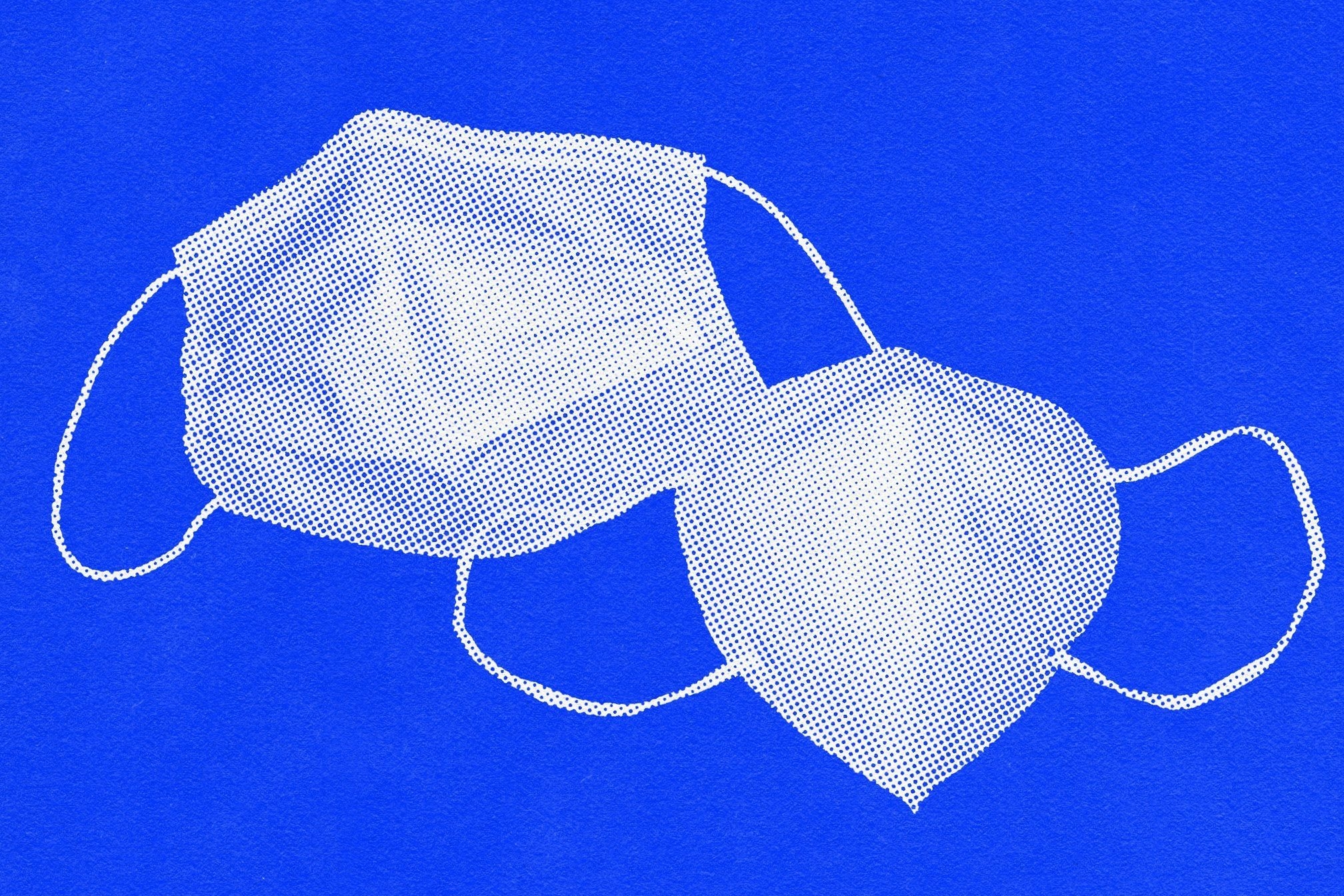 Features
Features
How to help clubs reopen safely & for the long haul
Mixmag presents a 10-step guide to aid the safe & sustainable reopening of nightlife
It's been a long slog of restrictions due to the pandemic — but around the world clubs are finally opening back up again, and more countries will hopefully be able to follow suit soon.
Although there may be the temptation to throw caution to the wind, it has never been more important to stay safe when heading out. Keeping this in mind, here at Mixmag we've put together a handy step-by-step guide on some of the ways you can keep yourselves protected against COVID-19 on your big night out, and help secure the future of the nightlife industry.
We’ve spoken to various figures including venues, DJs, festivals organisers and health experts to put together tips on how we can all work together to avoid spreading the virus and keep nightclubs open for good.

1. Test Yourself
You knew this was coming. A key step in your new clubbing life will be getting tested regularly before a night out. Many venues will now require a lateral flow test at varying times before entry, ranging from 48-12 hours before, so be sure to check beforehand.
Step 1: Order your tests. This ranges from country to country and region to region. In the UK a pack of tests can be ordered for free from gov.uk, delivery usually takes around 24-72 hours. If you haven't managed to get hold of a pack in time for your big night out, they are available at no charge from most chemists. For all of you outside the UK check your local government website for more details on how to get hold of lateral flow tests.
Step 2: Take the test. Look, there is a guide here - you know the story by now. Be aware with lateral flow tests it can take 30 minutes for a clear result, so give it some time to develop before taking your picture and/or logging it, it's way better to be safe than sorry.
Step 3: If you have a faint line, stay at home. Yes, a faint line may seem pretty inconsequential - but this should still be taken as a positive. Many venues are offering refunds with proof of a positive result - and there's always next week if this turns out to be false.
Step 4: Log your results. Again, there are different requirements for this depending on region and venue, so check ahead beforehand on your local government website or social media. In England, clubs are usually either asking for a picture of your negative test or an NHS COVID Pass. You can get a COVID Pass by logging your results here and heading to the NHS app where you will be provided with a QR code.
2. DON'T GO OUT IF THERE’S A RISK YOU’VE BEEN INFECTED
A continuous cough, high temperature, and a loss or change in taste or smell are the main symptoms of COVID-19. If you are feeling any of these symptoms, you should refrain from going to any events and self-isolate. These symptoms can take up to two weeks to fully develop. Regular testing helps to stay on top of infections - see the above section for information on how to go about getting tested.
It's worth nothing that if you have symptoms of COVID, a PCR test is a more accurate test. In the UK, you can get a PCR test delivered to your home, or if you have a car, you can visit a drive-through centre, both of which are free-of-charge.
If you’ve been in contact with someone who has tested positive for COVID, you should self-isolate for 10 days in case symptoms and an infection develops. If you are contacted by Track and Trace services, take heed of the information and act accordingly. Stay in touch with your friends and family and find out their COVID statuses as often as possible, especially after you’ve met them to make sure that you don’t spread the virus when heading out.
Since COVID symptoms may take some time to appear, it may be advisable to space out your visits to clubs and large-scale events in order to reduce the likelihood of spreading the virus unknowingly. Testing before you go to any events also goes a long way in preserving club spaces and making sure they can stay open without posing a threat to those inside.

3. BE AWARE OF VENUE POLICIES AND BE PREPARED TO FOLLOW THOSE RULES
There’s nothing worse than taxi’ing it all the way to the club to be turned down at the door after forgetting your mask or negative test result. Don’t be that person: before you leave the house, double-check entry rules. Some might not request much in the way of entry requirements, but most clubs across the UK have now implemented COVID safety rules.
Since reopening on July 19, London clubs such as Corsica Studios, FOLD and fabric now all require proof of a negative lateral flow or PCR test at a maximum of 48 hours before entry, while The Cause and Night Tales require the same taken within a day or less. Some venues have gone as far as upgrading ventilation systems, hiring COVID officers, and will require all staff to continue wearing masks. The upcoming GALA Festival in Peckham notes: "Despite it not being a legal requirement to have a test, we think this is the safest way forward and will help ensure our scene can stay open."
Beyond London, new rules at Manchester’s The White Hotel mean attendees can only enter with a COVID Pass - which involves showing proof of being fully vaccinated, taking a test, or having had the virus in the past 180 days. Following suit, Bristol’s Thekla and Liverpool’s 24 Kitchen Street both recommend taking a test, but have not made it compulsory. Nottingham’s Stealth and Sheffield’s Hope Works both require tests before entry, with Stealth recommending face coverings.
You should also be aware of local restrictions if you happen to head abroad. Across Europe, clubs are slowly opening their doors in countries such as Spain and Germany, the latter now easing in open-air raving. Berlin’s Revier Südost - run by the team behind the now-closed Greissmuehle - implemented rules of a ‘registered COVID ID’ and have also made masks obligatory. Bergain’s outdoor ‘Hangout’ series requires proof of full vaccination or a negative test within the past 24 hours and mandatory mask-wearing in the entrance area.
The White Isle is currently unable to party, but Ibiza Rocks, which has poolside residencies from Joel Corry, Nathan Dawe, Applebum and more this year, advises: “We have our ‘Poolside Sessions’ at Ibiza Rocks Hotel with a restricted capacity, all with advance bed/table reservations only and the beds/tables are socially distanced. Sadly there still is no dancefloor permitted in Ibiza but we changed the venue in order to add more poolside bed/table options with table service so guests can still come down and enjoy a great soundtrack and atmosphere by the pool, in a safe environment.”
If Ibiza does open, Amnesia’s Music Director Neil Evans advises: “We'll have some terms and conditions and try and work with everything we can to make the club safe.”
In the US, clubs are beginning to reopen with major venues in LA and New York continuing to stay safe and take precautions. Los Angeles hotspot Sound requires proof of a negative COVID test up to 72 hours prior to entry, and have temperature checks on the door.
4. BE AWARE OF LOCAL AND GOVERNMENT GUIDELINES
As previously mentioned, local guidelines differ wherever you go. In the UK, each province has different COVID government guidelines. Over in Wales, Scotland and Ireland, restrictions remain in place and nightclubs are still yet to open.
If you’re looking at heading abroad to go clubbing, make sure to check travel restrictions before you fly. Although one country may be on the green list for us, they might still require you to isolate or take a test upon entry following their own local rules. If you’re heading to France and you’re double vaccinated, you’re in luck. Clubs have now opened at 75 per cent capacity with strict rules on entry; meaning you must have had both vaccines before you head in. If you’re tripping to Spain, be careful of changing regulations. Although clubs reopened in some areas of the country such as Valencia and Catalonia for a short while, much like the Netherlands, they’ve now had to shut their doors.
In New York, where clubs have now been open indoors since April, the local government originally took the initiative that the UK will also implement come September; double vaccination for entry. Scrapped in June, clubs in New York now run at full capacity, but some require testing before entry.

5. WEAR APPROPRIATE PROTECTION
On your way to the club, wear a mask in higher risk areas such as public transport and vehicles, and try to socially distance yourself from others where possible. Earplugs, as ever, are also advisable at venues with powerful soundsystems to prevent hearing damage.
In the queue, and in bathrooms - it may be more appropriate to wear a mask as there a higher risk of catching and spreading COVID within these spaces. These high-risk spaces are not only exclusive to indoor spaces though, with public bathrooms posing a risk for outside spaces.
Follow event guidance on mask-wearing as closely as possible in order to ensure that COVID spread is kept at an absolute minimum.
6. RESPECT NIGHTLIFE WORKERS AND EACH OTHER
The clubbing industry is an ecosystem which relies on many different facets working in harmony. Across the range of club owners, promoters, bar staff, DJs, crowd members, security guards, sound technicians, and more, everyone can make decisions that will be of benefit to each other, and these considerations will be impactful for helping to make the return of clubbing safe and sustainable. Remember kids: teamwork makes the dream work.
Club owners and promoters can work together to formulate COVID safety policies, encouraging good health practices such as testing and ensuring venues are clean and offering sanitisation. Taking steps to suppress the spread of the virus will be of benefit to everyone who enters the club, whether they’re working, playing or on a night out.
DJs can also encourage health guidelines and share their own steps. “Please be considerate to your community & your DJs,” said Noncompliant, noting: “Dear folks attending any of my upcoming shows: for your safety, I want u to know I am vaxxed, will be Covid tested before & after gigs, & will remain masked during shows.” SHERELLE advised: “Please don't lose sight of the fact that cases are still going up. Please still be careful. Test urself before and after you go out ... This all can still be taken away.” Hodge says: “ I'll be taking a couple of lateral flow tests before the event, wearing a mask where possible and trying to be extra aware of people’s space. After the events, I’m also going to be avoiding any of my older family and vulnerable friends, and letting people know I’ve been in a club environment before I see anyone.”
“I think clubbers should be clubbing safely,” says Amnesia Ibiza’s Neil Evans. “If this is what we're going to have to learn to live with for a little while, people need to take responsibility for themselves. If you can take a PCR test to travel, you can take a lateral flow test a few times a week and before going out, and act accordingly if you're positive.”
“Be honest,” urge Steven Braines and Sophia Kearney from UK party, label and clothing brand He.She.They.. “Don’t copy your mate’s test - this is people’s livelihoods and indeed lives on the line here. If you’re positive miss this party otherwise clubs and raves will be shut down. Dance music is a community so we need to act like one and not just in self-interest.”
As well as taking personal responsibility to follow health guidelines, one of the best ways crowd members can help is paying for entry and helping an industry that has been at a standstill for 16 months get back on its feet. If you can afford it, buy a ticket rather than flooding DJs’ DMs with guestlist requests. This will help clubs stay open, keeping DJs and employees in work, and also help keep them safe, with financial security able to fund the additional costs of various safety measures.
Even if clubbing at-large is allowed to stay open, there will be smaller-scale frustrations for everyone: DJs or dancers getting told to self-isolate by track and trace ahead of a planned gig or night out; a venue being forced to close temporarily if there’s a COVID outbreak among staff and promoters having to scramble for new locations; punters having to wait in longer queues than normal as door staff learn to manage additional safety measures. Try to stay cognisant of the fact these may be necessary to have a positive impact in the bigger picture.

7. BE CAREFUL OF RISKS BEYOND COVID-19
While COVID has felt like the all-conquering threat to nightlife since the pandemic began, it’s important to remember that it’s not the only hazard associated with partying. Nightclubs will soon be filled with people in hot, crowded atmospheres. Many will have taken drugs, some for the first time in over a year, or the first time ever. And drug-related harm also poses a threat to nightlife and club closures.
Look out for each other: be aware of how to spot overheating or potential overdoses, take note of clubs’ health and safety policies and where to seek medical attention and which staff members may be of assistance. Drug safety resources can be found from websites such as talktofrank.com, PillReports, and from national health services or helplines. Drug harm reduction charities such as The Loop offer advice on how to get drugs tested to ensure they’re not contanimated, while certain clubs and festivals offer on-site testing facilities. Take advantage of these if they are present.
Issues such harassment and discrimination also need to be taken seriously, and taken action against. Clubs shoud endorse safe space policies, encouraging people to report any issues that arise, with effective support systems in place to deal with them. For clubbing to return successfully, it needs to work for everyone and be safe on a number of levels.
On the importance of making clubs safe for everyone, He.She.They’s Steven Braines & Sophia Kearney note: “It’s the responsibility promoters, clubs and the audience too - we’re all in this together and that goes for COVID but also racism, misogyny, homophobia, transphobia and sexual assault. It’s all a similar mindset of safe and enjoyable clubbing.”
8. STAY UP TO DATE WITH VARYING GUIDANCE, REQUIREMENTS AND SUCCESSES
As we’ve learned all too often through the pandemic, situations, guidance and advice can change at a moment’s notice. Staying on top of the changing tides of information will help keep you informed on the best courses of action to take.
When UK Prime Minister Boris Johnson is alleged to have said he would rather “let the bodies pile high” rather than enforce another lockdown - something that he denies - it’s no surprise that there will be times when government guidance and policies opted for by event organisers don’t align. International governments have repeatedly shown themselves up through this pandemic, so with unreliable leaders around the globe, keep an eye out for the successful examples being set by more thoughtful, albeit less powerful, leaders.
“The government has thrown us to the wolves, zero protections, vague guidelines, total abdication of responsibility - and it feels like they are doing this so that clubland can be blamed for the inevitable shitstorm of third wave of COVID cases,” says British DJ, producer and promoter Posthuman.
“It feels rushed,” he adds on the lifting of restrictions. “As much as I've been desperate to get back to the clubs - I haven't worked in 15 months, I know the industry is on it's knees, hanging by a thread - we are only about six weeks away from having all adults (who want it) with two jabs. I fear now, we've gone too early, and may well see another lockdown like LA and Netherlands, which will be devastating.” He advises: “I'm asking for venues at I Love Acid shows to insist on proof of a negative test (via the NHS Covid pass) upon entry. Obviously, this isn't foolproof, tests can give false negatives, people can fake the tests - but some effort is better than nothing. A seatbelt won't save you in every car accident but you still put one on, it's about mitigation.”
Hodge tells us: “I can’t wait to get playing and dancing again but it’s so important we are all as sensible as possible when doing so. We have to try and keep each other safe but also try our best to not be used as a reason or excuse for the government's failings.”
And in return, governments should not be let off the hook. Their political power extends over nightlife, and this means working with them is often necessary. Clubs in Ibiza are currently unable to open and have no information on whether it will be possible this summer. “We're being completely left in the dark,” says Amnesia’s Neil Evans. "What I would like to see is the Balearic or national government give us a roadmap for events to start happening, whether it's outdoor or indoor. And actually liaise with us to work on it.”
Across July 8 to 11, Serbia’s EXIT Festival went ahead with 180,000 people attending, with a scientific study conducted in Novi Sad since reporting that there were next-to-no COVID infections connected to the festival. Director of PR Sanjin Đukić tells us: “If you're looking at new positive cases in Serbia, there was no increase in numbers. We got some official information that there were 12 positive cases [under 0.007% of attendees] in Novi Sad connected to EXIT Festival. There was no major increase in numbers.”
Speaking about the measure the festival took to help make it safe, Đukić says: “We made a union of Serbian festivals and we presented a safety protocol to the Serbian government, the national health committee. Based on that, entry to the festival was limited to people who are vaccinated, people who have had and gotten over COVID, and those who took a negative test.
“We also divided those rules between visitors from Serbia and visitors from abroad. People from Serbia had to show us their digital green certificate - a Serbian document that shows that they have been vaccinated or have antibodies. If they didn't have that, we organised a free antigen test in Novi Sad for all tickets buyers. For people who came from outside Serbia, we allowed them to show a PCR test no older than 72 hours, or show a similar document to our green certificate.”
Explaining advice EXIT could share for other event organisers, he says: “As a result of months of talking to the government, we also checked test events in Liverpool and Barcelona and Germany and combined all of those rules into the safety guidelines. We also talked to the government, we gave all of our resources and research to make this possible. We opened more exchange points in Novi Sad where people could exchange their tickets for a wristband so it was less crowded, and we really invested a lot of money into testing. It's a question of talking to your government and finding the best ways to do this and organise safe entry. If you can organsie something like this, bearing in mind we had 50,000 people per day, a combination of what we did could work. Find what's suitable for you, but be prepared that it could cost.”

9. REMEMBER WHY IT’S IMPORTANT TO ENSURE CLUBBING IS SAFE
We've never been in a situation like this before in our lifetimes. COVID-19 remains a legitimate threat to our health, and it hasn't gone away simply because we're allowed to dance again. It's wise to be cautious, particularly if you're not yet fully vaccinated.
"It's a tough one," comments Dr Mike Tildesley, Associate Professor of Infectious Disease Modelling at the University of Warwick.
"18-25s, in particular, are less likely to have been vaccinated - or may have only had one jab - meaning they are the most at risk of catching the virus. But also they have suffered so much in the last year and a half so why shouldn't they be allowed to finally live their lives?"
Nightclubs are designed for dancing and being close to others - sometimes in intimate, confined spaces - and with this comes the risk that the airborne droplets that COVID-19 uses to travel from person to person can linger in the room, infecting more people.
"Social distancing is still the most effective way of stopping the virus," comments Dr Mike, "If you can't do that - ventilation, making sure the venue you're going to has a window open, or vents that mean the air is flowing through."
"If you go in with a group of friends who've all tested negative - staying as a group will mean you're at much lower risk than if you're all-around mixing with others."
You might be thinking - well, I feel pretty confident going out - but staying safe isn't just important to protect yourself. The hospitality sector is one of the most impacted by COVID-19 cases, staff catching the virus from partygoers is common - and outbreaks have been the cause of club closure outside of the UK.
Prime Minister Boris Johnson has already hinted that clubs could be shut if there is a spike after their reopening - this would mean even more financial hardship for your venues, staff, even your favourite DJs.
10. STAY VIGILANT AND HAVE FUN!
Whether this is a long-awaited return to the dancefloor or your first-ever foray into the magical world of clubbing, there's one incredibly important thing you need to remember to do - have the best time!
You've lived through a global pandemic, in many countries dealt with a year-and-a-half of various lockdowns and isolations measures - this is a chance to reconnect with friends, your community, to go and listen to music coming out of a wicked soundsystem.
It's important to stay vigilant - for your own sake, for your friends, for the staff working at nightclubs and to ensure that clubs can stay open for the long-term, and this won't be temporary freedom, but a permanent one.
But also: go and throw your hands in the air again, go chat absolute crap in the smoking area, order some expensive drinks at the bar, shazam some tracks, have a snog, dance so much your step counter thinks you're on a hike, give your mates a big hug - go do everything that makes going to the club so special.
Go do everything we've missed so very much. You've all well and truly earned it.
See you down the front!


